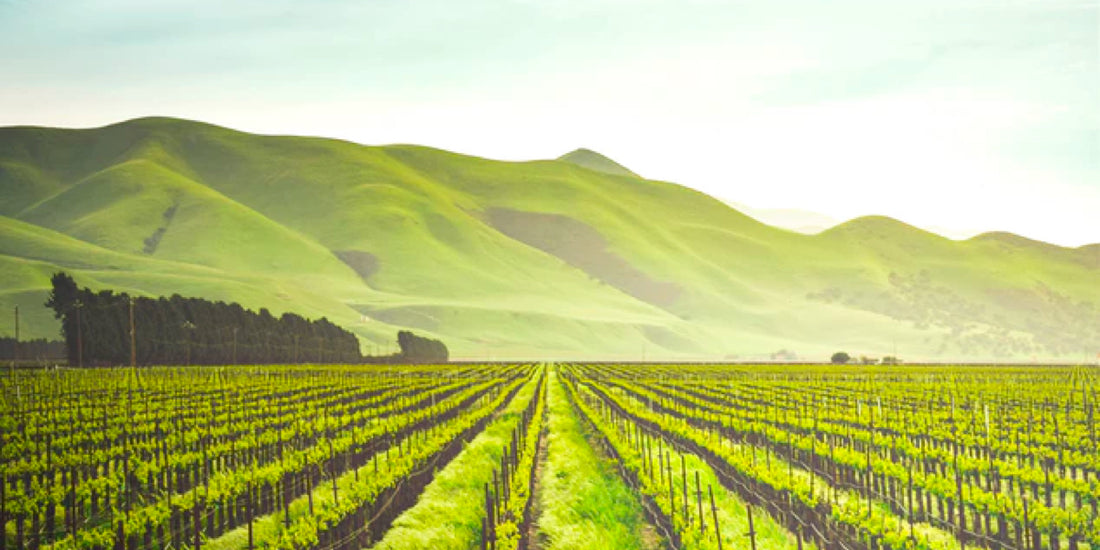
The organic food industry has skyrocketed in the past few years. However, organic grapes account for only an estimated 5% of total vineyard acreage worldwide. But consumption of organic wine has been increasing, nearly 10% yearly in the U.S.
So let’s breakdown the facts - what is organic wine, is organic wine better, and where’s the best places to find organic wines.
(Hint: VINEBOX’s Current Edition contains 9 organic wines, by the glass.)
What is Organic Wine
The most basic definition of organic wine is wine made from organically farmed grapes. The standards for what constitutes “organic farming” vary from country to country, but generally excludes the use of artificial chemical fertilizers, pesticides, fungicides and herbicides.
And then, there is the second phase of winemaking, fermentation of the grapes into wine. This is where it gets more confusing. There are a number of inputs that can be added to the fermentation process, but for organic certification, these ingredients must be specifically allowed and cannot exceed 5% of the total product.
Specifically, in the U.S., during the fermentation process, sulfites cannot be added to the wine in order to receive organic certification. While wine naturally produces some sulfites, they cannot be added. In Europe, the level of sulfites must not be greater than 100 mg per liter for red wine to receive organic certification.
In addition to a reduction of sulfites in the bottle, organic winemaking also bans any GMOs or non-permitted additives. The biggest omission from conventional winemaking is the lack of coloring agents and concentrated wine additives like Mega Purple, and flavoring agents such as malic acid and caramel.
If the wine is made from organic grapes, but fails to receive organic certification during the winemaking process, then the wine can still carry the label “Made with Organically Grown Grapes”. Whilst still a good practice to farm organically, if you’re looking for the real thing, make sure to check your labels.
Is Organic Wine Healthier For You?
Ok, so organic farming + organic winemaking = organic wine. But why should we care and why are more and more people drinking organic wines?
This lack of manipulation in both the field and cellar leads to a wine that is arguably more real, and definitely more natural. Organic wine is most often the best expression of both the grape and also the terroir, the land and environment in which it is grown.
Additionally, the saying goes, you are what you eat (and drink). So there’s definitely a peace of mind that comes with knowing that no pesticides or additives are going into your wine. But what does that really mean? Are organic wines healthier? The short answer is yes.
In general, organic wine grapes are much healthier and therefore produce heartier skins and higher concentrations of all of those good for you anthocyanins and antioxidants, including polyphenols and cardio-friendly resveratrol. Also, organic wines are free of residual traces of vineyard additives such as chemical laced pesticides and herbicides.
Certified organic wines also have less sugar on average and don’t contain potentially harmful cellar additives such as flavoring agents or caramel coloring. These additives plus higher sugar levels are what typically lead to headaches. So going organic may help prevent that future headache.
Is Organic Wine Better for the Environment?
This is another plus one for the “organic wine” camp. There are real, tangible and lasting benefits to the environment and the farmers as a result of transitioning to organic farming practices.
Specifically, organic vines tend to need less water applied, because soils are built up with compost and contain more organic matter, which holds water far better. Organic vines have been proven more resilient against increasing droughts and temperature spikes.
By curtailing harmful and unnecessary irrigation practices organic wineries are protecting local ecosystems and preserving their surrounding flora and fauna. By using less water and not tainting the existing water supply with chemicals and Round-Up, the vineyard workers are doing their part to leave the earth as healthy, if not healthier, than they found it.
Speaking of vineyard workers, EU Organic certifications have guidelines in place to ensure ethical treatment of employees from those picking the grapes to those stomping on the grapes. By drinking organic wines, you’re supporting independent families and their staff.
Best Places for Organic Wines
Organic wines can definitely be harder to find, especially in supermarkets or larger liquor stores. The U.S. actually makes less than 2% of organic-labeled wines. While there are some great producers in the U.S. of organic wines, they are definitely harder to find.
In contrast, Spain, France and Italy represent 73% of all organic vineyards in the world. And as organic wine imports increase, looking towards these 3 countries can open up an entirely new channel for trying organic wines.
If you’re looking to try organic wines, VINEBOX has made it easier than ever. Our current edition, “A Toast to Organic Wines,” contains 9 organic wines from across Europe, all by the glass.


2 comments
I enjoy reading
Great great info!! Been transitioning lately to all ORGANIC, as possible. Thank you!!